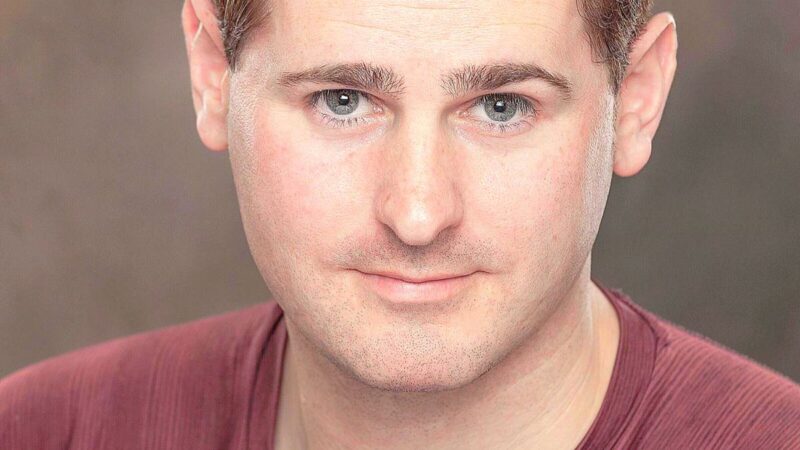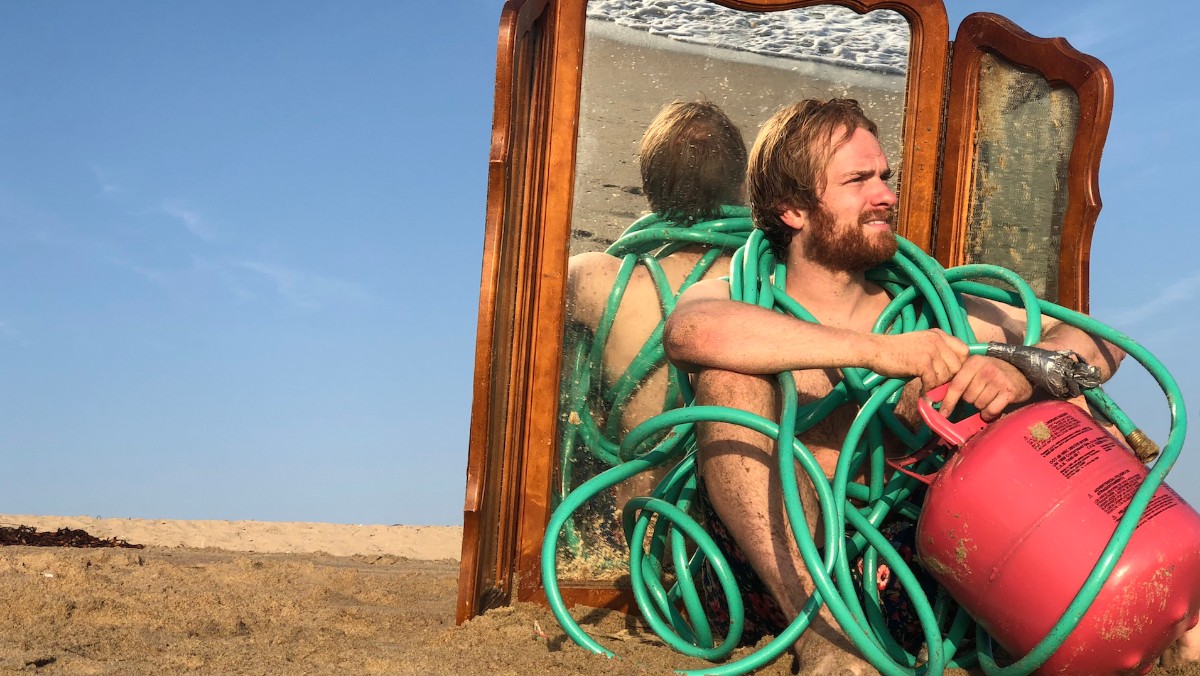
A Case Study
Narrative | Dramatic Features
Film Name: Mondo Hollywoodland
Genre: Comedy/Sci-Fi
Date: 9/1/2019
Director: Janek Ambros
Producer: Janek Ambros, Chris Blim
Writer: Janek Ambros, Marcus Hart
Cinematographer: Janek Ambros
Production Company: Assembly Line Entertainment, Good Hammer TV
Budget: $10,000
Financing: Assembly Line Entertainment, Good Hammer TV, Galo Medina
Website: www.mondohollywoodland.com
indieactivity: Tell us about “who you are“?
Janek Ambros (JA): Janek Ambros
Introduce your film?
Janek Ambros (JA): The film is about a politically confused mushroom dealer who traverses through Hollywood to discover the meaning of Mondo. It’s an homage to the 1967 cult classic pseudo-documentary Mondo Hollywood, directed by Robert Carl Cohen. Unlike the 1967 film, this film is narrative fiction, but it attempts to capture the tone and bizarreness of the 67 classic and other films of the era like The Trip, Easy Rider, Mondo Trasho, and psychedelic films from Europe. That said, we always wanted to have a modern touch to it, so we chose many set pieces, characters, and general ideas pooled from modern culture and politics.
The Official Trailer for Mondo Hollywoodland directed by Janek Ambros
Tell us why you chose to write, produce, direct, shoot, cut/edit the movie? Was it financial, chance, or no-budget reason?
Janek Ambros (JA): I take on many hats mostly due to necessity due to budget constraints. My first few films were pretty cheap, so I’ve had to be my own cinematographer many times which is not ideal as it’s probably my weakest link. That said, this film, made it a little more forgiving because we used an iPhone as the camera with only one lens to give it a cinema verite vibe. As for editing, that’s a bit more by design and planning. Editing is probably my favorite part of filmmaking and my biggest influences in the film have always been Thelma Schoonmaker, Sergei Eisensten, and other editors who edit with a more experimental touch. With this film, the genre and tone lent itself for a more experimental type of editing since it involves psychedelia and drugs, so I was able to really do some odd editing sequences which are always fun.
Introduce your crew?
Janek Ambros (JA): Because we lacked money, we didn’t really have a crew. I and Chris Blim, the star, co-writer, producer, and production designer, were the other half on set. While I’d attempt to compose a nice shot, Blim would focus on making production design, which he unsurprisingly did a wonderful job at. He has a very imaginative and creative talent when it comes to design and the rare ability to execute his vision with minimal resources. This is in addition to producing the film on a day-to-day basis, which was incredibly tough. Aaron Golden, who pays Cesar, helped us with the tougher sound days, so there were a few days where we had more than just Blim and me.
I and Blim wrote the script with our co-writer, Marcus Hart, and together we had a very fun ride writing the script since we’d write it as we were shooting. If we shot something that wasn’t in the script, it would sometimes make us go back and change the script accordingly. This was due to the fact that we could shoot anytime we want since it was shot on the phone, but also a bit by design to truly capture a more cinema verite feeling of the 60s.
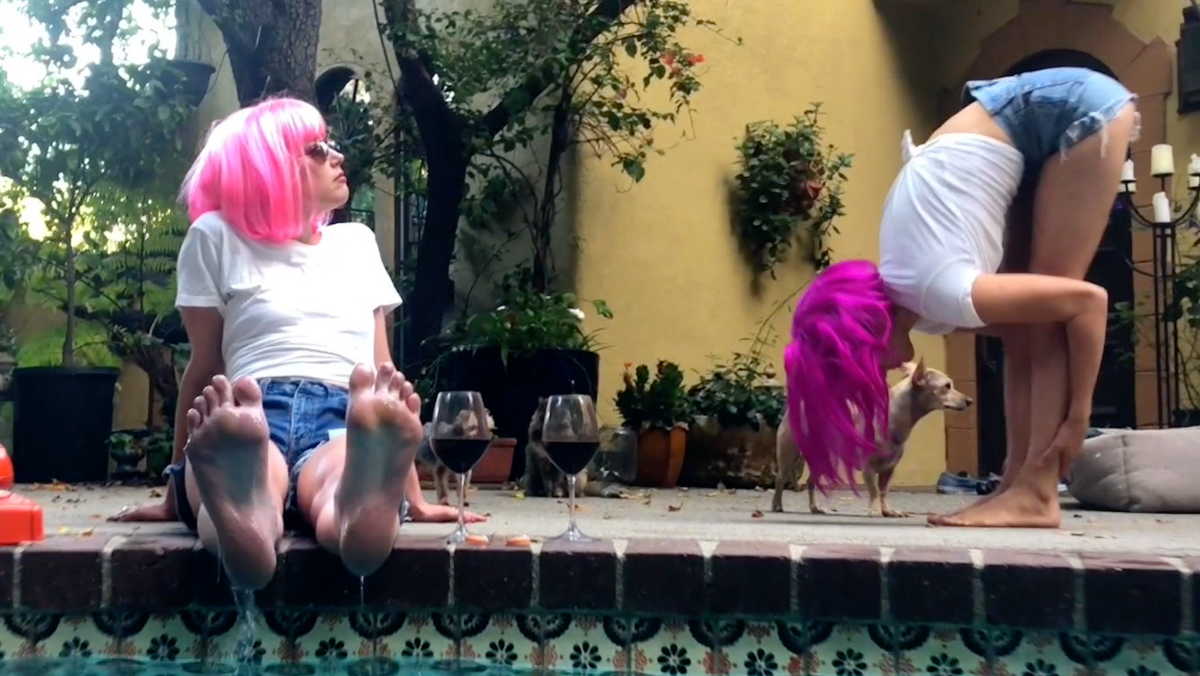
What are your personal experiences putting on all these hats/responsibilities (simultaneously)? Tell us about story, writing, and production?
Janek Ambros (JA): My favorite director to read about since I was very young is Francis Ford Coppola, mostly because he was both a film director/writer as well as producer, so I’ve always been pretty comfortable wearing multiple hats. With a film like this, I can’t really imagine not wearing multiple hats as a director since it’s such a low-budget film, so none of it was surprising. I was also very fortunate to have several producers in addition to Chris Blim helping with production logistics from time to time, like Kelly Parker and Alex Loynaz.
What is the source of the idea? How did the story develop from the idea? And how did the story evolve into a screenplay? Why do this story? Do you have a writing process?
JA: As I said before, the project idea came from really enjoying Mondo Hollywood (1967). I originally wanted to just do narration with VR and explore Hollywood, but that evolved most notably when I started collaborating with Blim to make it more of a narrative comedy.
I think we all wanted to do this story to make a film that was fun ‘hang out’ movie. I think many times it’s tempting to try to make something really dramatic and emotional, but there are few comedies anymore so it was fun doing that. The film isn’t meant to be taken seriously; it’s silly and, hopefully, fun. Admittedly, I always want to say something political in films so I’m glad there is a general political point against fascism that is buried underneath the silliness, lending itself for many subversive, political, and psychedelic imagery.
Let’s talk pre-production: take us through a timeline of how you started and ended it.
JA: I mostly just started shooting B-roll with a loose outline of the narration while Marcus wrote the narration. Originally it was written as the spirit of James Mason, but we ended up keeping it vague. We actually offered Bill Hader to do the voice-over but unfortunately, that didn’t work out. The pre-production for certain parts of the movie would happen while shooting; it was a very bizarre way to shoot.
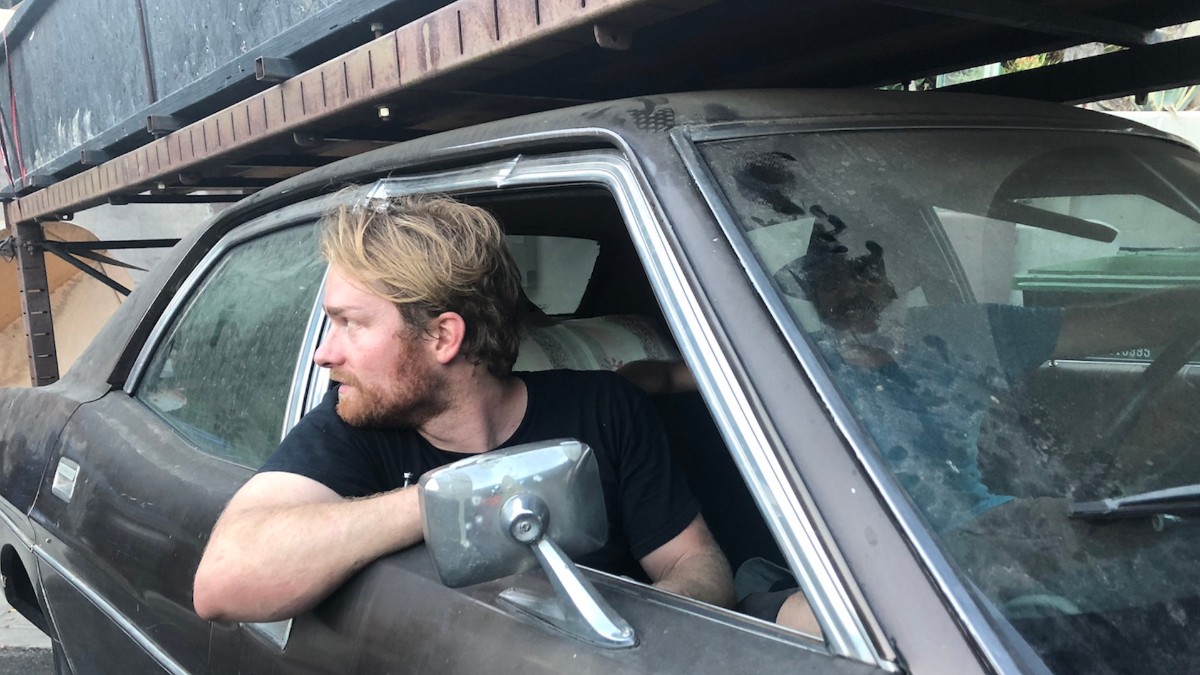
What was your rehearsal process and period?
JA: We didn’t really do rehearsals on Mondo Hollywoodland, other than a few takes before rolling camera. But even then, we mostly shot it since it was shot digitally.
You shot the film in days. How long were your days?
JA: We shot the film over 60-70 days, but mostly the “days” would only be a few hours, sometimes with me, Blim, and one other person. We really kept it contained and spread out, rather than a dense rigorous shoot. Since we didn’t have a budget and the actors were kind enough to do this with us, we would shoot around actor availability and try to keep it short as possible so we didn’t tire anyone, especially since they were exactly sure what this project was.
Did the tight shooting schedule make it harder or easier? How did it affect performances?
JA: Since it wasn’t a tight shooting schedule and we gave ourselves time since we didn’t have a crew behind us, we could just focus on getting a cinema verite vibe and let the actors, many of which are comedians and improv actors, run wild with dialogue. Much of the dialogue, as one could probably tell, is improvised so we wanted to make sure we had time for the actors to get into a fun mindset.
During the film production, what scene (that made the cut) was the hardest to shoot? And why?
JA: The scene in Mondo Hollywoodland where Boyle is driving to the protest was probably the hardest because it was so chaotic. Blim drove around that massive picture car and I basically just laid on the hood of the car as he drove with no harness to make sure we had shots that really showed how chaotic the character was in the moment.
But the heist sequence was the hardest because there were so many different shots and we didn’t know if it would work because it changed tone and genre pretty quickly. It was one of the only times I had to draw storyboards shot by shot to make sure it looked like a cohesive heist that, in theory, could play and work in a big-budget movie. Of course, it’s obvious it’s not a big-budget film when you watch it, but hopefully, it still flows like one.
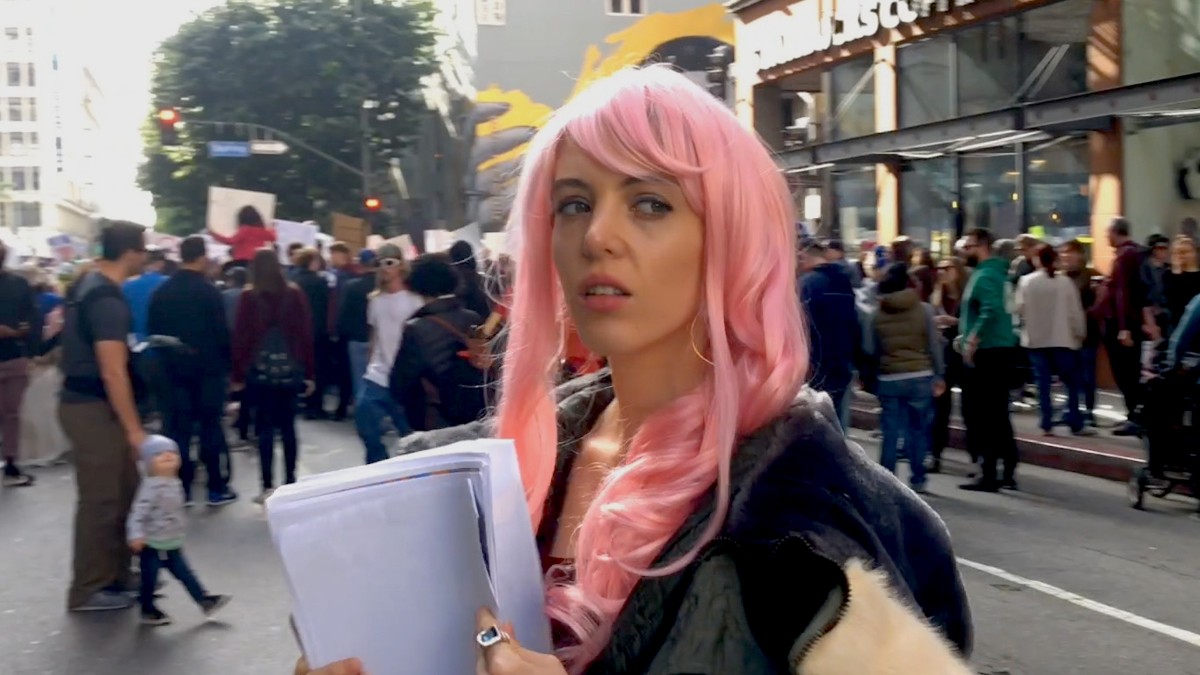
When did you form your production company – and what was the original motivation for its formation?
JA: I formed my production company, Assembly Line Entertainment, in 2012 right when I moved to Los Angeles. The original motivation for it was American Zoetrope. Growing up, I’d love reading about Coppola’s grand vision for a company run by artists at his house with bedrooms made into editing rooms, writing meetings in the garden, and a free-spirited approach to making films that went against the traditional way the studios made films back in the day.
The motivation was also the sure fact that I knew money made movies go-round. Unfortunately, movies are the world’s most expensive paintbrush. I read a lot about Coppola and the ways he’d work the system and talk to the right people by using his money and finance savvy, rather than just focusing on his writing and directing. Even more of motivation was Orson Welles, in the twilight of his life, saying something to the effect of “I spent 90% of my life trying to finance movies and only 10% making movies.” That’s a frightening comment, especially coming from arguably the greatest filmmaker of all time. Knowing the business angles gives me a bit of freedom, so making a company and having everything be under that umbrella was crucial. That’s why much of my time is devoted to executive producing; helping secure financing for other projects is practice for securing financing for my own endeavors and I can attempt to use that infrastructure to my own projects.
What was the first project out of the gate?
JA: The first film I ever directed and first production of Assembly Line was Son of Man, an adaptation of Fyodor Dostoevsky’s “The Grand Inquisitor,” a parable in his novel Brothers Karamazov about Jesus coming back to Earth during the Spanish Inquisition only to find the Church telling them they don’t need him anymore. In my adaptation, I moved the story to Jesus coming back to the Earth during World War 2 where Catholic Nazis in the Ustasha regime in Croatia tell him he’s no longer needed. It’s political, philosophical and a bad attempt at David Lean with sweeping extreme wide shots and soaring music (beautifully scored by Corey Wallace). I hope that is a foreshadow for a large-scale “David Lean” like picture I can soon make.
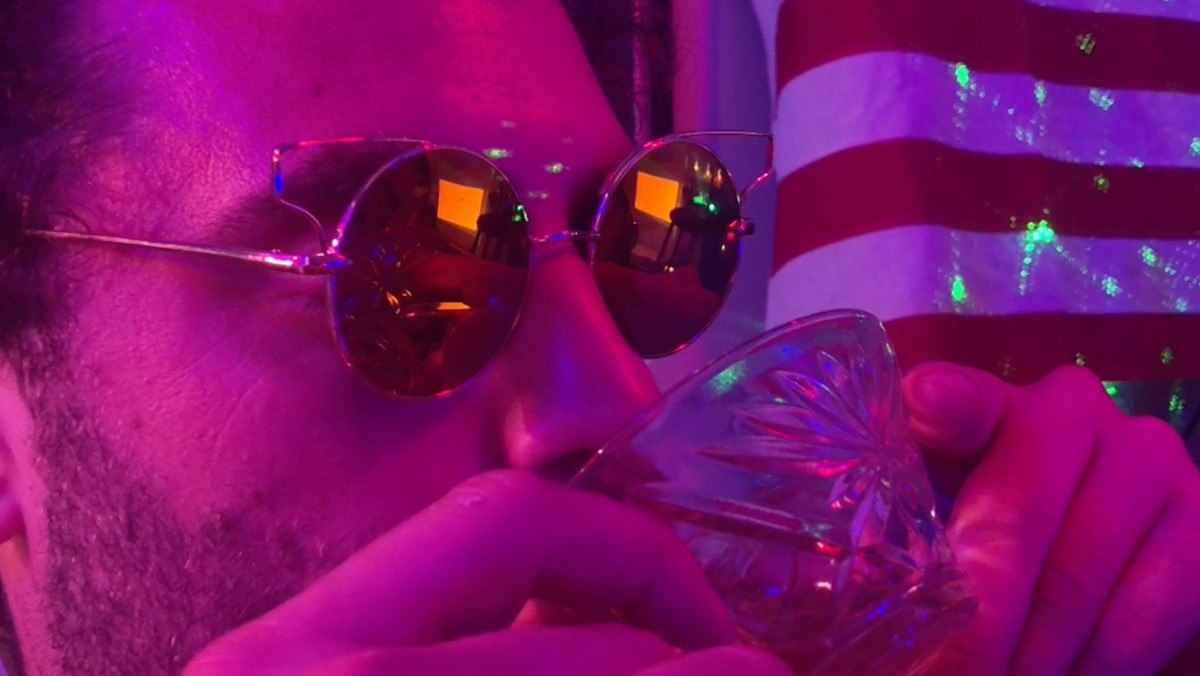
What about independent filmmaking and the business do you still struggle with?
JA: Since the dawn of cinema, it’s always been a battle between art and business because, as mentioned, it’s the world’s most expensive paintbrush. Some historians, mostly in America, glamorize this and claim that it’s that mixture between the profit movie and artistic achievement motive that creates a recipe for success. Or even some movies try to make this point, an example being Ford vs. Ferrari, which the producer at a PGA screening a few years ago claimed it was an analogy of. I consider myself more on the left, so I’d like to think that’s mostly bullshit but regardless, it’s the system we are in, so at least having an understanding of this is important because your starting from a disadvantage if you don’t, nor will you have the knowledge to try to change that system if that’s your goal.
I think the biggest issue is the sales component; most movies need to reach a certain threshold of “value” to get green-lit. The issue is, distributors think they know exactly what their audience in their region likes, and it tends to be years behind. This can be difficult for marginalized artists because they haven’t had years of built-in audiences due to years of discrimination. It is proof that the “profit motive” glorification that some of making a movie is lopsided to certain people, and leaves out marginalized communities. Streamers don’t have to abide by foreign sales estimates as much, so if they make a movie, they may make a bit of a risk, but they also have their own problems.
For VERY independent film, like Mondo, it’s just about trying to put something together. If one does make something for very little money, one may as well do it extremely small or make it with friends so you aren’t just paying peanuts to crew members doing very tiresome labor. It’s a tough balance of trying to make something cheap, but also not doing anything that is so cheap that it becomes unsafe or unfair to people working on the set.
Many people say now that you can just make a movie with your phone so there are “no excuses” but that is absolutely bull shit, too. Most people don’t have the free time to shoot a movie because they have a job. The key is to find at least someone who will help bankroll your living expenses as your film or scheduling pieces over a long period of time.
Where do you think your strengths lie as a filmmaker?
JA: I’m addicted to work so maybe just the hustle of getting things done.
Let’s talk about finance. How did you finance the film?
JA: Galo Medina, Chris Blim, Ryan Easton, Jillian Barbara, and myself “financed” the film, but so did all of the actors and people who worked on the film through their time.
How important is marketing? Talk about the festival tour? Do you think a project can make a dent without it nowadays?
JA: Festivals, other than the top 5 or 10 festivals, are amazing events with wonderful people curating, but there is unnecessary pressure on filmmakers to play at festivals. They aren’t stepping stones and they shouldn’t be marketed that way.
You can absolutely make a dent without playing and festivals. It’s almost entirely irrelevant to a film’s success. Of course, if you do get into a top 5 or 10 festival, it can be very helpful but only if you know how to maximize the opportunity and have adequate money for a publicist or the infrastructure to handle publicity yourself.
What do you hope audiences will get from the presentation of your film?
JA: Life can be fun and fascism is bad.
What else have you got in the works?
JA: My next film as a director is “Hey, Johnny!” which is a character study about a degenerate show-biz manager who is trying to keep his one last client from leaving him. It’s very much inspired by films like Marty, The Apartment, Sweet Smell of Success, Midnight Cowboy, and, mostly, the play Death of a Salesman. That’s one I’m really excited about.
Some of the other projects I have in the works are scripts I wrote that I plan to produce, not direct. An adaptation of the play Nixon’s Nixon, a biopic about Frances Perkins, and a sweeping epic about a right-wing provocateur are the ones that come to mind. We shall see how things unfold.
Tell us what you think of the Case Study for Mondo Hollywoodland. What do you think of it? Let’s have your comments below and/or on Facebook or Instagram! Or join me on Twitter.
Follow Janek Ambros on Social Media
Website
IMDb
Twitter
Instagram
MORE STORIES FOR YOU

